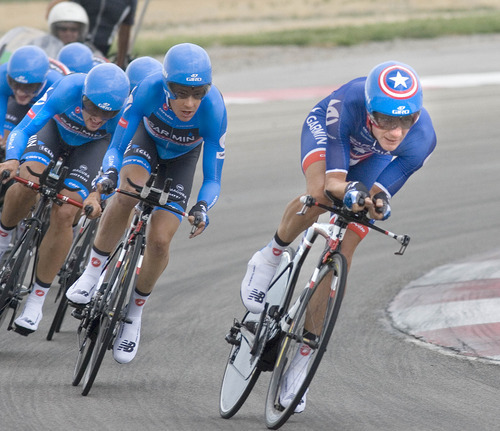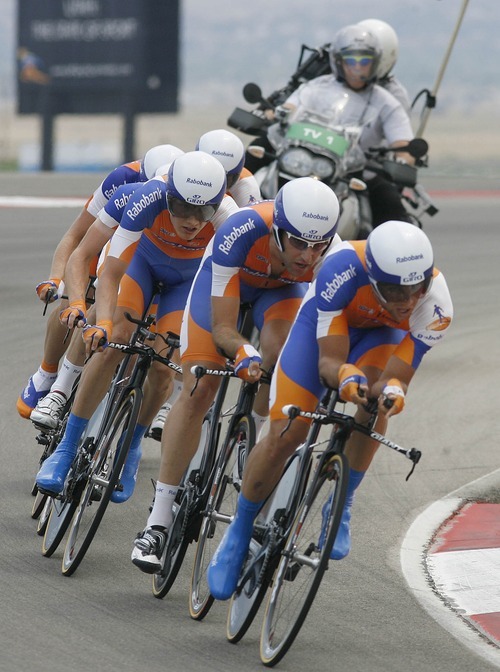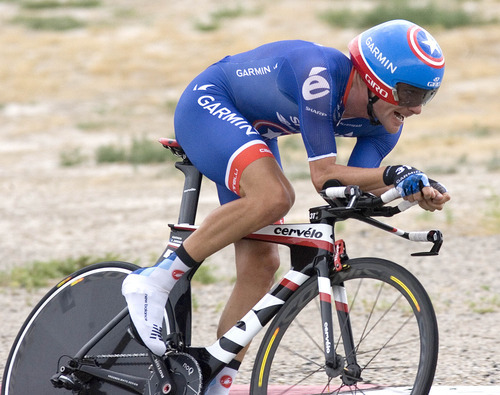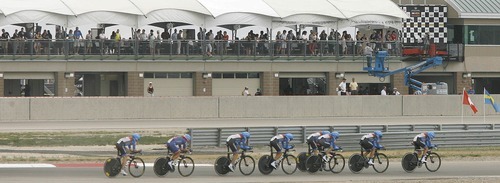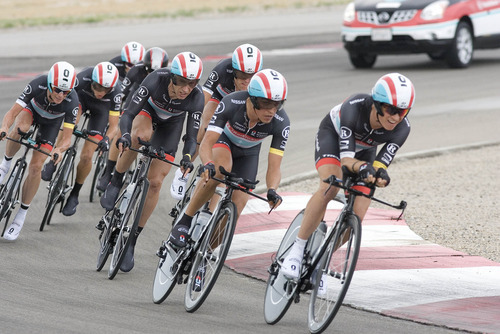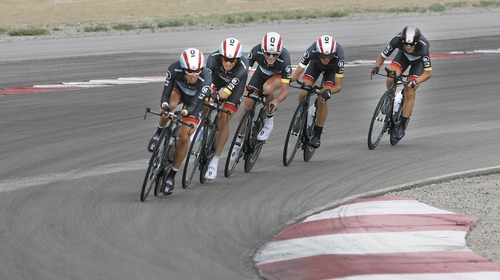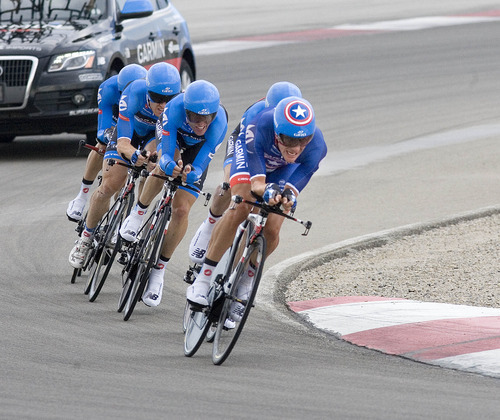This is an archived article that was published on sltrib.com in 2012, and information in the article may be outdated. It is provided only for personal research purposes and may not be reprinted.
Tooele • On Monday, Connor O'Leary found himself wearing blue. After the Tour of Utah's grueling, 131-mile opening stage in Ogden, the 21-year-old finished as the top rider out of the race's host state — beating out veterans more than a decade older.
Not far away from the podium, his parents, Dave and Julie, looked at each other and started bawling. O'Leary had been diagnosed with testicular cancer three days after his 19th birthday. Now, he was not only alive but back in the top tier of competitive cycling.
"It's been two years of hell," said Dave, his voice cracking. "We've come a long way."
O'Leary and Bontrager-Livestrong put in a respectable ninth-place finish in Tuesday's team time trial at Miller Motorsports Park — barely more than a minute behind Garmin-Sharp-Barracuda's blistering lead, but enough for the Skyline High graduate to keep his blue jersey.
But with his cancer safely in remission and his brown locks grown back, O'Leary's biggest victory was in hand before the Tour even began.
Two years ago, while his fellow national team riders were busy with the Tour of Utah, O'Leary was being treated for cancer in Indianapolis. An email from Lance Armstrong had connected him with famed oncologist Lawrence Einhorn, who had treated the seven-time Tour de France champion 14 years earlier.
He had been diagnosed on June 21, 2010, just three days after his 19th birthday. O'Leary had been feeling a swelling in his left testicle for almost six months. Dave had suffered from prostate cancer two years earlier, so he took Connor to his urologist. The diagnosis took less than 10 seconds.
"It was an out-of-body experience," Connor said. "It didn't really hit me that it was happening until I did my first chemo treatment. Woke up in the morning and hair started falling out. That's when it kind of hit me that this is real."
Soon, the teen had surgery to remove his testicle and a port inserted into his upper right chest for IV drips. Some weeks, he was stuck to the bed for seven hours, five days straight. When he wasn't receiving visitors, he had little to take his mind off the chemotherapy except Netflix. He said he probably finished every documentary on the streaming service.
The recovery process ran into a hitch shortly before his third round of chemotherapy. It was November, and O'Leary began experiencing pain in his right shoulder. A closer examination revealed blood clots that had made their way from the port to his lungs. He was rushed to intensive care, where he stayed for seven days.
"We thought he was going to die," Dave said.
After he completed chemotherapy, his body a withered version of its former athletic form, he spent a semester at BYU-Hawaii. Paradise was at his doorstep, but more important was a chance for him to get away from all the questions. Sick of talking about cancer, he found solace in his months away from home, slowly working himself into shape with flat, low-altitude rides.
More than a year has passed since then, nearly all of which O'Leary needed to get back into racing shape. With a stage win already in hand this year at the Tour of Walla Walla, his return has been faster than anyone expected — even him.
"It took a lot of hard work," he said. "I definitely didn't think it was possible." —
Stage 2 highlights
R Connor O'Leary, a cancer survivor who graduated from Skyline High in 2009, keeps the blue jersey as Utah's top rider through the Tour of Utah's first two stages.
• Christian Vande Velde puts on the yellow jersey after Garmin-Sharp-Barracuda's victory in the team time trials.
• Omega Pharma-Quickstep, featuring two-time defending Tour champion Levi Leipheimer, puts in a surprisingly poor showing, finishing last in the time trials at 17th.


